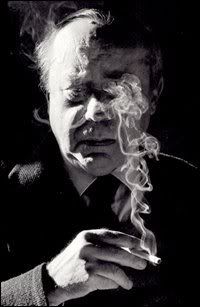 In the post-Godfather cinematic imagination, the Mafia have always existed. Dons and their families have big weddings and ghastly shootouts in the booths of Italian restaurants. But after reading Leonardo Sciascia's The Day of the Owl, one realizes the Sicilian crime syndicate was once considered a myth, a legend born out of the aftermath of Fascist Italy.
In the post-Godfather cinematic imagination, the Mafia have always existed. Dons and their families have big weddings and ghastly shootouts in the booths of Italian restaurants. But after reading Leonardo Sciascia's The Day of the Owl, one realizes the Sicilian crime syndicate was once considered a myth, a legend born out of the aftermath of Fascist Italy.The novella's story is simple enough: a man is murdered on a bus and the crime is eventually solved by Captain Bellodi, an Italian from Parma but considered a foreigner by Sicilian standards. One of the Carabineri informants leaves a letter after his death (another murder) which links all the crime in the city to Don Mariano Arena, the local family boss. Though the case eventually goes to a high court in Rome, nobody is punished.
Written in 1961, it is difficult for us on the other side of the Godfather to imagine how dangerous it would have been for a writer, even one of fiction, to write anything about the mafia. Yet the coda tells otherwise: "One thing is certain, however: I was unable to write it with that complete freedom to which every writer is entitled." He further mentions that the reader shouldn't confuse the characters in his story with any "real person or actual occurrence." We see this caveat at the end of films or one of the front pages of other works of fiction as part of the required legalese, but to have the author pen a special coda (and thereby stepping out from behind the invisible narrator's curtain) makes one wonder what kind of peril Sciascia had entered by writing The Day of the Owl.





No comments:
Post a Comment